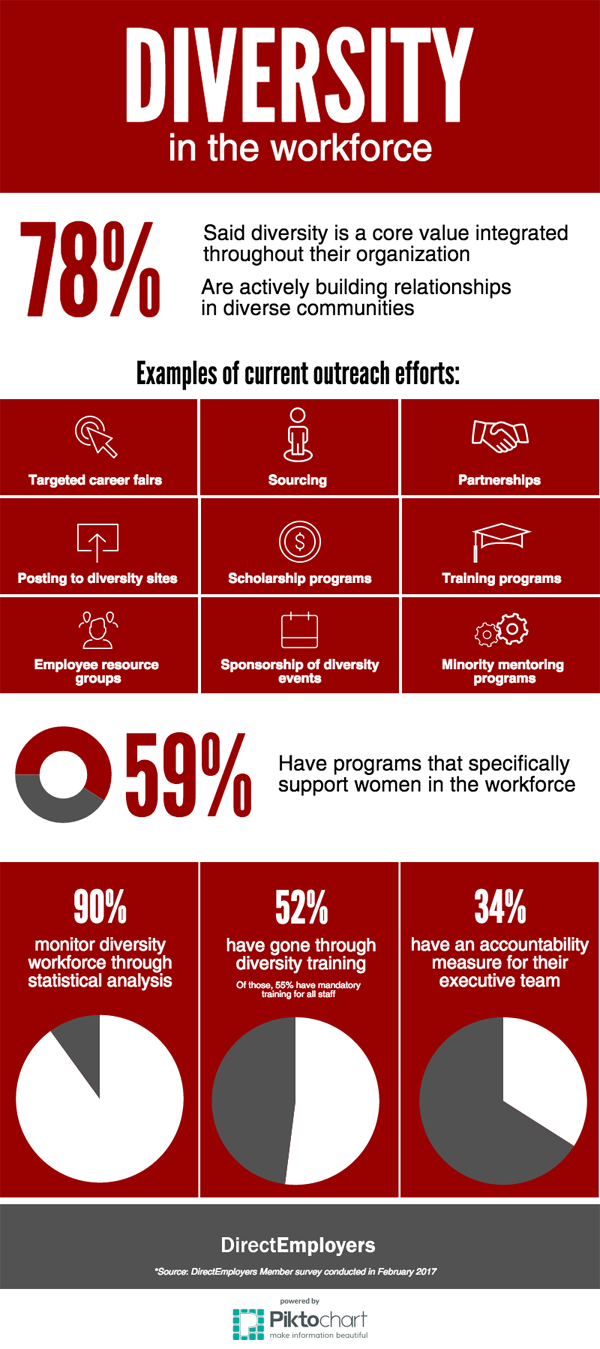For employers of federal contractor status, diversity & inclusion is always top of mind as efforts are continually made to meet mandated hiring targets and remain compliant in the eyes of the Office of Federal Contract Compliance Programs (OFCCP). For employers who are not federal contractors, the desire to staff a diverse workforce also remains a top priority. In fact, according to a recent survey conducted by DirectEmployers Association on behalf of a Member company in the engineering industry, 78% of respondents said that diversity is a core value that is structurally integrated throughout their organization.
This same 78% of respondents also indicated that their organization is active in serving and building relationships in diverse communities through efforts such as niche career fair participation, sourcing, partnerships with diversity organizations, training programs, employee resource groups (ERGs), minority mentoring groups and scholarship programs, among others. While diversity hiring is often heavily concentrated on race, it is equally as important that employers consider other attributes such as sexual orientation, religion, nationality and gender. Specifically, 59% said that they have programs that support women in the workforce. Examples of such programs include women’s ERGs, annual women’s conferences, mentoring and senior level training programs, additional benefits such as paid maternity/parental leave and accommodations including breastfeeding support.
Of course, when it comes to results, an increase in diverse hires and steady retention are the goal. Surprisingly, 90% of all respondents said that they do monitor their diversity workforce by running statistical analysis with the majority reporting results to their leaders to help shape Affirmative Action Plans (AAPs) and form additional programs. On the other hand, despite their dedication to establishing an inclusive workforce, only 52% indicated that their organization has gone through diversity training, such as bias avoidance and sexual harassment, with just over half of those respondents saying that the trainings are mandatory for all staff. As far as the occurrence of such trainings, responses varied from onboarding to monthly and annual.
So how do their efforts pay off? Less than half (40%) said that their organization has established KPIs and metrics that allow them to measure the success of their diversity programs. When asked about their overall success, responses were split. Some stated not enough data to determine an outcome, while others saw success, even overachieving their goals. Others were mixed, seeing extreme diversity in some areas of the company and not in others.
While great strides are being made, there is still work to be done in establishing diversity & inclusion in the workplace–as well as in measuring the results. Use these benchmarks to see how your efforts shape up and consider implementing similar programs in your organization. As always, Members can view the full survey results in our Member-exclusive community, Connect, and thank you to all of our Members for participating in this initiative!
Are you a DirectEmployers Member interested in conducting a survey? Email kacie@directemployers.org to initiate a research project!


